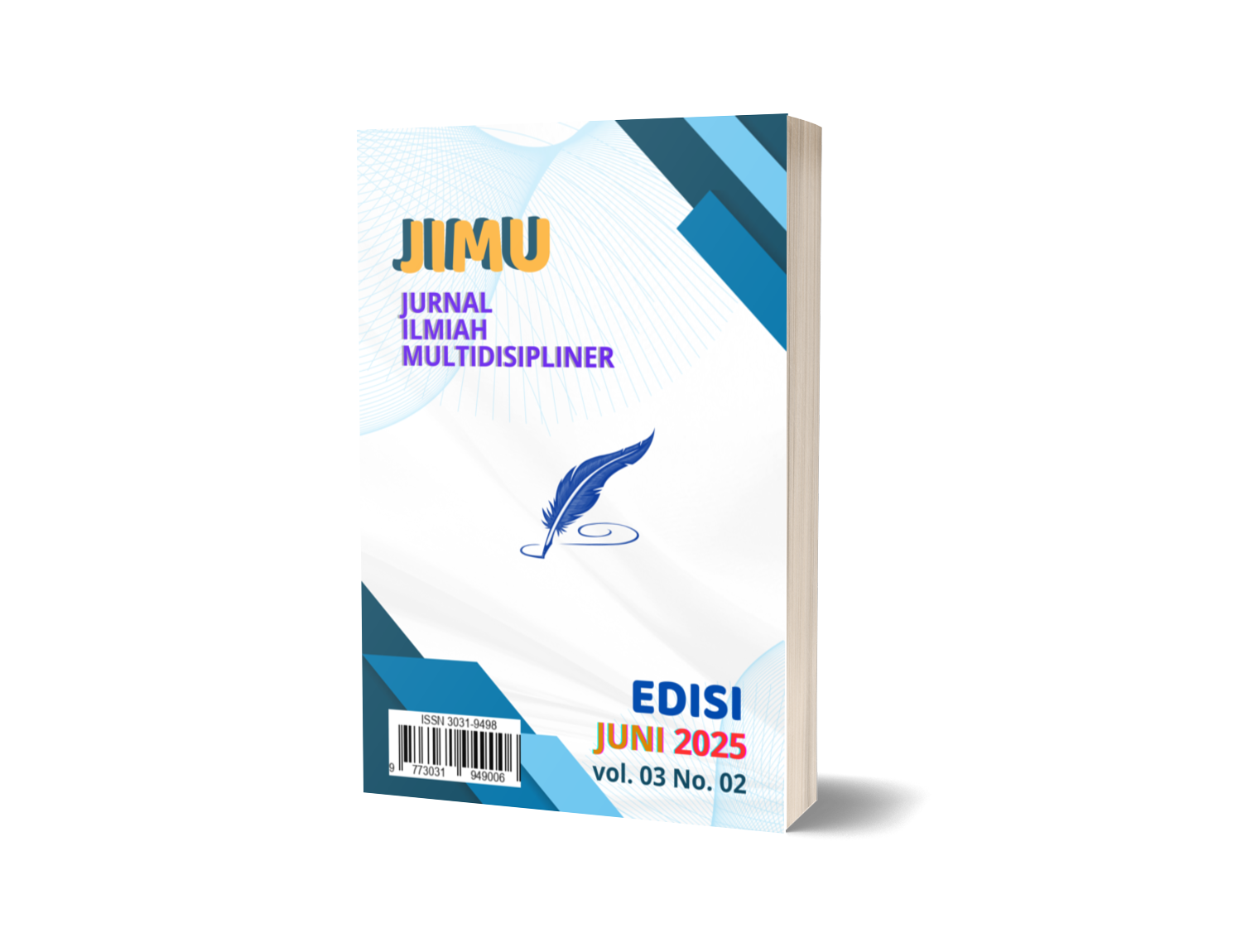Integrating Game-Based Learning Using Quizizz to Improve Vocabulary Skills in Seventh Grade Students of SMP Negeri 2 Bangsri
Kata Kunci:
Game-Based Learning, Quizizz, Vocabulary MasteryAbstrak
This study examines the effectiveness of integrating game-based learning using Quizizz in improving the vocabulary mastery of seventh-grade students at SMP Negeri 2 Bangsri. The research method used was a quasi-experimental design with pre-test and post-test on two non-equivalent groups: the experimental group using Quizizz and the control group using conventional methods. The research instruments included a vocabulary test, a student perception questionnaire, and teacher interviews. Data analysis showed that the experimental group's average post-test scores increased significantly compared to the control group, indicating the effectiveness of Quizizz in expanding students' vocabulary. The questionnaire data showed that most students positively perceived Quizizz, stating that the platform made learning more enjoyable, interactive, and motivating. Teacher interviews reinforced these findings, mentioning that Quizizz helped provide quick feedback and encouraged passive students to become more involved, despite technical challenges such as device limitations and internet connectivity issues. Overall, the integration of Quizizz proved effective in improving learning outcomes and creating a more engaging and participatory learning environment.
Unduhan
Referensi
Anggraini, G. O., & Wiryanto, W. (2022). Analysis of Ki Hajar Dewantara's Humanistic Education in the Concept of Independent Learning Curriculum. Journal of Educational Research, 15(1), 33–45. https://doi.org/10.21831/jpipfip.v15i1.41549
Brown, H. D. (2008). Principles of Language Learning and Teaching (Fifth Edition).
Dari, W., Hidayat, S., & Wulandari, E. (2023). Understanding by Design Strategies in 21st Century Education. BIOSFER: Journal of Biology Education, 14(2), 169–179. https://doi.org/10.24042/biosfer.v14i2.15818
Freddy H. Istanto. (2002). Global Perspective: Keywords for Design Education Facing the 21st Century. Nirmana, 4(2), 99–105. http://puslit2.petra.ac.id/ejournal/index.php/dkv/article/view/16083
Hastuti, A. Y. (2020). Merdeka Belajar: Optimizing IT in English Speaking Skills Learning through Procedural Text Simulation Videos. National Education Seminar, 85–95. http://jurnal.ustjogja.ac.id/index.php/semnas2020/article/view/7342
Jiménez-Sánchez, A., & Gargallo-Camarillas, M. (2020). Gamification in Foreign Language Learning: A Systematic Review. Advances in Mobile Learning Educational Research, 2(1), 1–13. https://doi.org/https://doi.org/10.2478/amph-2022-0035
Johnson, E. B. (2002). Contextual teaching and learning: What it is and why it will stay. Corwin Press Inc.
Leong, K., Sung, A., Au, D., & Blanchard, C. (2021). Review of Microlearning Trends. Journal of Applied Work Management, 13(1), 88–102. https://doi.org/10.1108/JWAM-10-2020-0044
Nabila, H., Muliati, A., & Talib, A. (2023). The Effectiveness of Using Quizizz in Improving Students' Vocabulary. Journal of Excellence in English Language Education, 2(4).
Oktarika, D., Sabirin, F., & Sulistiyarini, D. (2022). LITERA: An educational game incorporating character education on information and communication technology literacy. Journal of Informatics and Science Education, 11(2), 165–179. https://doi.org/10.31571/saintek.v11i2.3585
Patisung, S. (2021). High School Students' Attitudes Toward the Use of Quizizz in English Vocabulary Learning [Thammasat University]. Unpublished Master's Thesis.
Pratiwi, D., Tuerah, S. S., & Wuntu, C. N. (2022). The Effect of Quizizz on Middle School Students' Vocabulary Mastery in Manado. Journal of Social, Community, and Literature, 4(1), 47–54. https://ejurnal.unima.ac.id/index.php/socul/article/view/7203
Rahman, A., Arsyad, A., & Maryam, S. (2023). The Effectiveness of Quizizz in Improving Vocabulary Mastery Among MA Ulul Albab Makassar Students. Verba, 7(1), 1–9. https://jurnal-fkip-uim.ac.id/index.php/verba/article/view/180
Rambung, O. S., Sion, Bungamawelona, Puang, Y. B., & Salenda, S. (2023). Transformation of Education Policy Through the Implementation of the Merdeka Belajar Curriculum. Journal of Education Science, 1(3), 598–612.
Sugiyono. (2016). Quantitative, Qualitative, and Mixed Methods Research (Sutopo (ed.); 8th edition). ALFABETA









